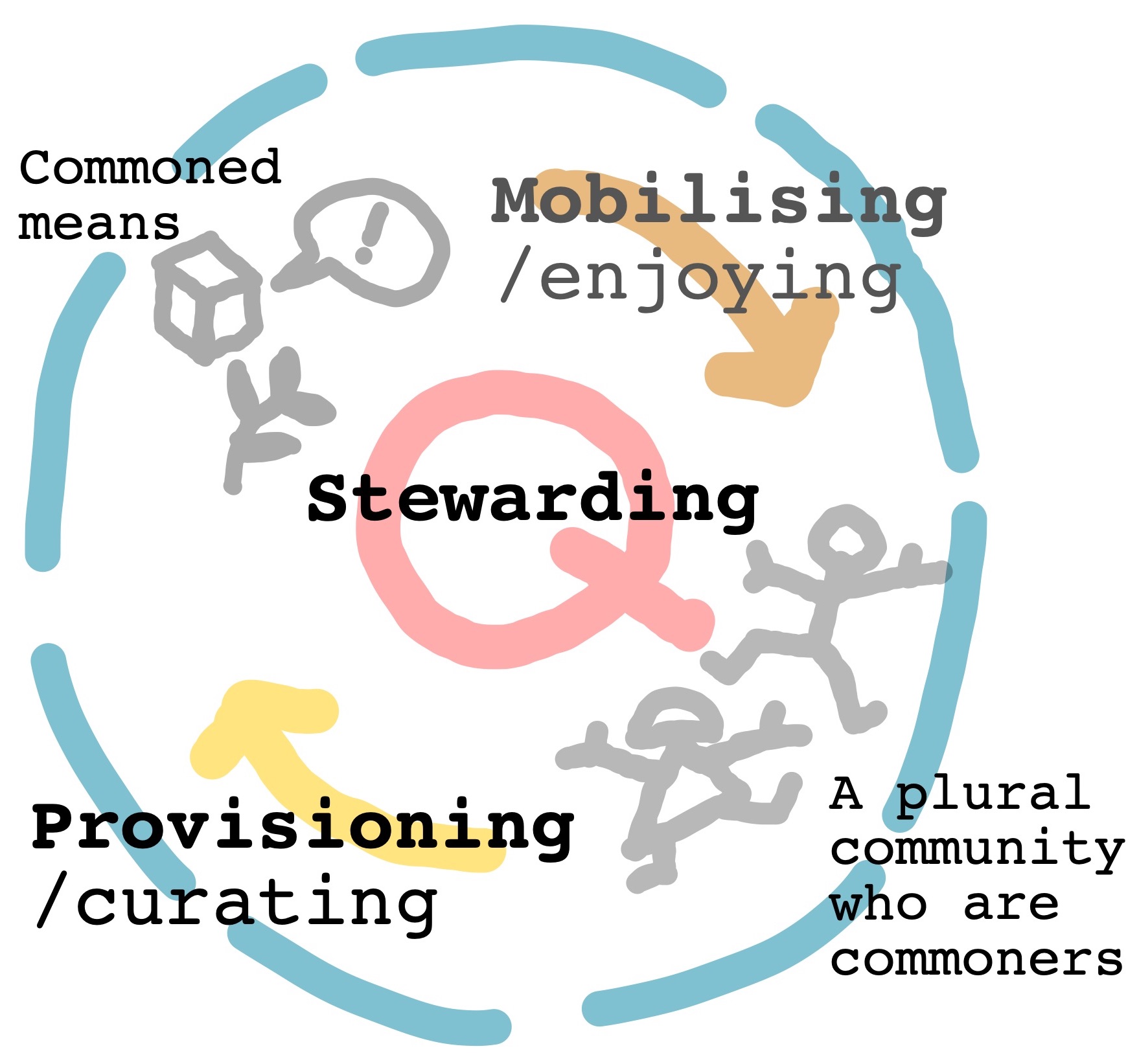On this thing of pooling and contributions . . I’m still unable to make any sense of ‘pooling needs’ in a commons. My take is that it’s the commoned means that are pooled : as a commons (stewarded/collectively regulated) rather than as an unregulated common pool (a market, a ‘natural resource’, ‘public domain’, ‘a food bank’, ‘free software’, whatever).
On contributions . . ops members make committed, substantial contributions of work in provisioning the commons. Active user members, ops members and Board members make contributions of work in stewarding the commons (in all-hands, the forum, General assembly, etc). And ordinary User members make contributions, basically, in mobilising the commons - making it live, making the commoned means do work in society, giving life and value (as @Graham notes) to the commons, and valuing the commons, tacitly, by using it.
Incidentally, User members might also contribute to provisioning/curating the commoned means, eg thro providing feedback on the platform or thro contributing in the media commons (the forum). They might contribute by funding the provisioning of the platform and not using it (tacit crowdfunding, as Graham notes). But these are incidental or secondary? It’s mobilising of the commons and contributing money for market-related costs that are the users’ basic contributions?
Using is what a commons is FOR  The users complete the cycle of commoning - as below. As Graham implies, it’s preferable (actually, constitutive, fundamental) that User members use the commons.
The users complete the cycle of commoning - as below. As Graham implies, it’s preferable (actually, constitutive, fundamental) that User members use the commons.
I don’t see this as ‘pooling’ anything. I see it as collectively (but tacitly) making the commons a commons, by animating it, weaving it into the living of life and the doing of work. This is in parallel with the explicit steering and cultivating of the commons that take place in stewarding and provisioning, respectively. The three constitutive functions that make a commons are represented in this schema, derived from Bollier & Helfrich’s pattern language of commoning.
@wouter writes of ‘usage vs production’, in the schema this = mobilising vis a vis provisioning. Two of the three ‘moments’ of commoning. On top of that, collectively stewarding then makes all the difference! Not all Members contributte in that way? But all can.

![]() linked here. If a majority votes in favour and no objections are made, then this draft will become the newly approved definition. In case objections would be raised then these will be considered for a further adjusted version.
linked here. If a majority votes in favour and no objections are made, then this draft will become the newly approved definition. In case objections would be raised then these will be considered for a further adjusted version.